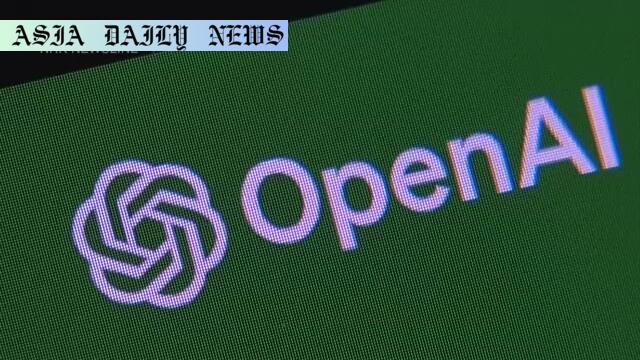AI Agent: OpenAI unveils next-gen technology offering revolutionary productivity by automating browser tasks like reservations and searches.
OpenAI has launched ‘Operator,’ a cutting-edge AI agent capable of automating various browser-based tasks.
The tool is currently in research preview and available only to select ChatGPT users in the United States.
The AI agent can perform tasks like searching for campsites and making reservations with minimal user input.
OpenAI plans to expand availability worldwide after the initial testing phase.
Competition in the AI agent sphere is intense, with players like Google and Anthropic also investing heavily.
The release has sparked discussions about productivity, creativity, and the potential risks of autonomous AI decision-making.

Introduction to the Revolutionary AI Agent
OpenAI, a leading US-based company in artificial intelligence and the developer behind ChatGPT, has unveiled a groundbreaking AI agent named “Operator.” This cutting-edge technology is designed to take over browser-related tasks, making searches, bookings, and other interactions seamless and remarkably efficient. This innovation signals a step forward in the integration of autonomous AI systems into daily life, promising to revolutionize how people interact with technology.
What ‘Operator’ Can Do
The “Operator” AI agent is an advanced tool that leverages natural language processing to execute tasks with minimal human intervention. For instance, users can type a command like, “Find me a family-friendly campsite this weekend,” and the system independently searches, evaluates the best options, and can even finalize reservations. This goes beyond mere search tools, incorporating decision-making and automation in a way that’s intuitive and efficient.
Availability and Exclusive Access
Currently, this remarkable tool is available as a research preview and is accessible only to select subscribers of ChatGPT in the United States. The selective rollout will enable OpenAI to analyze its performance, address any concerns, and refine its capabilities before wider distribution. OpenAI has announced its intention to expand availability to global users in the near future, ensuring that more people can benefit from its innovative features.
The Broader Implications
Sam Altman, CEO of OpenAI, projects that technologies like “Operator” will transform productivity and creativity by streamlining routine tasks. As AI agents continue to evolve, their potential applications span not only personal convenience but also broader industries such as healthcare, education, and travel. This marks a significant trend in AI development, hinting at an era where machines can do much more than assist—they can actively manage tasks and increase individual efficiency exponentially.
Rising Competition in the AI Agent Space
OpenAI is not alone in this race. Major players like Google and the AI startup Anthropic are investing heavily in similar technologies. The competition signifies the importance and growth of AI agents in the tech ecosystem. As these companies push boundaries, the market for autonomous AI agents is likely to witness rapid advancements, benefiting users with innovative and diverse tools.
Debates Around Safety and Ethics
The emergence of autonomous AI tools like “Operator” also raises important ethical and safety considerations. Entrusting AI with tasks that inherently require judgment and decision-making provokes critical discussions on the risks of potential errors or misuse. Ensuring these systems operate securely and responsibly will be paramount to their acceptance and long-term success.
Concluding Thoughts
OpenAI’s “Operator” is expected to dramatically impact the ways we engage with digital platforms. By bridging the gap between basic automation and independent task execution, this AI agent represents a substantial leap in technological innovation. While challenges like ethical concerns and competitive pressures persist, advancements like these underline the transformative potential of AI in real-world applications. As “Operator” progresses out of its research preview phase, it has the capacity to redefine how we envision productivity and convenience in the 21st century.
Commentary
A Significant Milestone in Automation
OpenAI’s decision to enter the realm of autonomous AI agents with “Operator” marks an important milestone in advancing technological innovation. As someone who frequently uses browser tools for everyday tasks, I find the prospect of having an AI streamline and automate these processes utterly fascinating. It not only saves valuable time but also allows users to focus on more critical and creative activities. The thought of typing a simple command and witnessing a machine execute multiple steps efficiently is exciting and feels almost futuristic.
The Potential for Broader Applications
However, what intrigues me most is the potential reach of such technologies beyond just convenience. Industries like healthcare, education, and travel could experience significant benefits if AI agents like “Operator” are adapted to sector-specific needs. For instance, patients could schedule appointments or find specialized clinics without navigating complicated systems. Students could receive personalized learning material or resources through AI-guided assistance. This versatility makes such tools immensely promising for society at large.
Ethical and Safety Considerations
Yet, with every transformative innovation, there are challenges. Allowing an AI to make independent decisions, no matter how trivial, comes with risks. What happens if there’s misinformation in the sources it pulls from? How do users ensure data security and privacy? These are valid concerns that need to be addressed, and I hope OpenAI and other companies adopt a stringent approach to ethical and secure practices as they develop such products.
Final Thoughts
Overall, OpenAI’s “Operator” feels like a pivotal development that could define the future of productivity tools. While there may still be a long way to go in refining the technology and making it accessible to a global audience, this is undoubtedly a promising start. I, for one, look forward to seeing how this innovation evolves and shapes the world of digital tasks.


